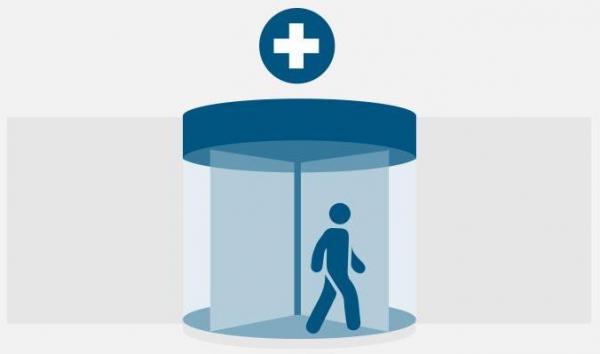
Corewell Health care coordinators are using predictive analytics to reduce hospital readmissions and save health care dollars according to a recently published study in the peer-reviewed journal NEJM Catalyst.
Readmissions are costly, sometimes doubling the cost of care, which makes it a key performance indicator for hospitals. The Corewell Health study, taking place over 20 months in 2021 and 2022, has thus far kept 200 patients from being readmitted and has resulted in a $5 million cost savings.
“By working in advance of recovery barriers and focusing on whole-person needs, real rates of readmission can be reduced, even for people at high risk for return to acute care,” said study co-author Alejandro Quiroga Chand, MD, senior vice president, chief medical officer ambulatory care and population health, Corewell Health West.
In January 2021, the care coordination team at Spectrum Health, now part of Corewell Health, began to predict which individuals faced a more difficult recovery after their hospitalization and to create a targeted and actionable plan to address barriers from the first day of discharge to the end of the first month.
Leveraging artificial intelligence with clinician verification, the patients at greatest risk for readmission were identified for more focused transition support. This support included communication across clinical teams as well as focused interventions designed to address three key elements of personal recovery: clinical challenges, behavioral health and social determinants of health.

An interdisciplinary team mapped interventions over the month of transition support. Task-oriented follow-up and proactive outreach promoted an intervention that meets each patient at the point of their personal needs. Proactive outreach included questions and patient interventions relating to diet, transportation and behavioral health, among others.
The combination of first identifying complex patients then providing personalized support made a significant impact on patient care and delivery system performance metrics.
“In addition to the benefit in care delivery for individual patients, this initiative has had a beneficial impact in terms of performance on targeted U.S. Centers for Medicare & Medicaid Services readmissions and value-based contract arrangements,” said study co-author James Moses, MD, chief quality, safety and experience officer, Corewell Health.
On the basis of the 20-month experience, the authors believe this patient-centered intervention is scalable and sustainable. In 2023, the program will be expanded from 15 offices to 45 primary care sites that serve patients enrolled with Priority Health.


